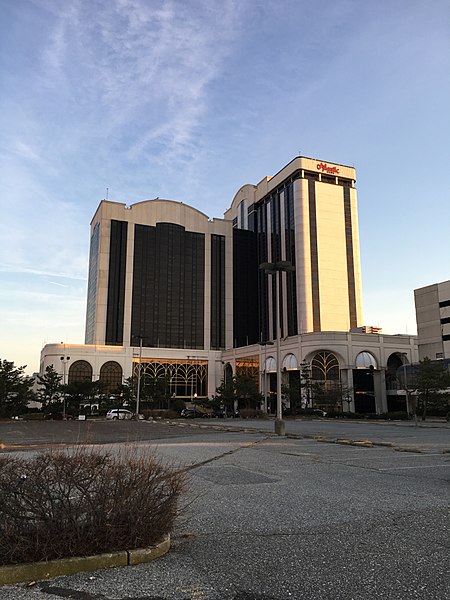
The long-closed Atlantic Club Casino has finally been sold. Florida-based TJM Properties confirmed on Tuesday that it has sold the shuttered property to Colosseo Atlantic City Inc., an investment and construction firm based out of New York. Financial details were not disclosed.
The Atlantic Club was one of the first casinos in Atlantic City, opening in December 1980, but it will not be revived as a gambling venue. In fact, there is a deed restriction that prevents it from being a casino. Instead, Colosseo plans to reopen it as an 800-room hotel. The property will also include new dining and retail.
“It’s got a lot of renovating that needs to be done; that’s what we do,”Colosseo’s Rocco Sebastiani said. “We buy assets that need a lot of work and bring them up to market.”
The Atlantic Club is located at Boston Avenue and the Boardwalk, the south end of Atlantic City’s stretch of casinos (or west end, depending on how you look at a map).
Rummy Pandit, executive director of the Lloyd D. Levenson Institute of Gaming, Hospitality, and Tourism at Atlantic City’s Stockton University, told The Press of Atlantic City that the revived property could really help that end of the Boardwalk.
“If the property is marketed to a predefined segment, it’s going to be very successful,” he said. “Its location is amazing. … So this end of the Boardwalk would certainly benefit from that.”
City Council President Marty Small, Sr. said that the sale of the Atlantic Club is “great news for our city.”
The Atlantic Club closed in January 2014, the first of four Atlantic City casinos to close that year. A month prior, Judge Gloria M. Burns of U.S. Bankruptcy Court in Camden, New Jersey approved the sale of the casino for just $23.4 million to Caesars Entertainment and Tropicana Entertainment. Caesars paid $15 million for the property, while Tropicana paid the remainder for the slot machines and table games. Caesars removed many of the non-gambling assets of the casino and sent them to its four other local casinos.
There have been many near-deals to buy the Atlantic Club over the years. One of the most interesting to our readers was actually by the Rational Group in January 2013. Rational Group was at the time the parent company of PokerStars and Full Tilt Poker.
Back then, PokerStars had no presence in the United States. The Rational Group filed for an interim casino authorization with the New Jersey Division of Gaming Enforcement and was using the opportunity to try to re-enter the U.S. market. It wanted to rehab the casino and, of course, wanted to get in on the online poker market that was to launch later in the year.
A few months later, the deal fell through, likely scuttled by fears about PokerStars’ worthiness. The American Gaming Association filed a brief with the DGE and Casino Control Commission, protesting the Rational Group’s casino application because PokerStars continued to accept U.S. customers after the UIGEA passed in 2006. Some state legislators, including Assemblyman Ralph Caputo, took sides with the AGA, not wanting a company with PokerStars history of “criminal accusations and illegal gambling” to be able to own a casino in Atlantic City.


















